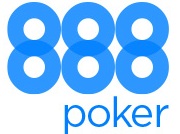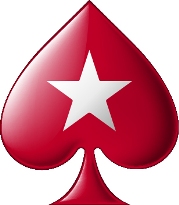Now that you’ve got a handle on how position affects the hands you can play in flop games, we can go ahead and recommend which hands you should play from what positions. We assume you’re playing a fixed-limit cash game, not a poker tournament.
Playing Hands from Early Position
When you’re one, two, or three seats to the left of the big blind, you’re in early position and need to be very careful about the hands you decide to play. Again, you have to be cautious because there are so many players behind you who could pick up a monster and make you pay at least one more bet for the opportunity to draw to an inferior hand. Table 8.1 lists the hands we recommend playing from early position.
Playable Early Position Hands If No Raise |
||
| Pairs | Suited Cards | Offsuit Cards |
| A,A | AK, AQ, AJ, AT | AK, AQ, AJ |
| K,K | KQ, KJ, KT | KQ, KJ |
| Q,Q | QJ, Q10 | |
| J,J | J10 | |
| 10,10 | ||
| 9,9 | ||
Yes, you will end up tossing a lot of hands into the muck when you’re in early position, but it beats tossing a lot of money you’ll never see again into the pot. If you can handle the extra stimulus and have a good read on how your opponents are playing, check your e-mail, visit a Web site, or read a book while you’re waiting for the next hand. Never play a hand because you’re bored!
Some recommend playing pairs as far down as 77 in early position against average opposition, but we’re not convinced that it’s always a good idea to do so. Lou Krieger, the author of Hold ’Em Excellence (Conjelco, 2nd edition, 2000—a book we recommend highly), lists 77 as a playable early position hand, but he also notes that the poker starting hand requirements table at the back of his book is probably a bit liberal for a standard game. If you’re in a loose, passive game where four or more players routinely see the flop and raises are few and far between, feel free to call in early position with pairs down to 77 and maybe, maybe, J9 suited and T9 suited. If you’re in a wild game in which four or five players routinely call one or more raises before the flop, tighten up a bit, grit your teeth, and toss TT and 99, QTs and JTs, and KJo. Wait for the good hands to come, beat your opponents about the head and shoulders with them, and hope they don’t catch a miracle card on the river.
Those are the hands you should call with, but which should you raise with? In early position, you should raise with any pair from JJ on up, but if you think you can force everyone to fold, you can raise with any pair down to 99. You should also raise with AKs, AQs, KQs, and AKo, but be careful with AKo. All you have is Ace high, after all. That’s still a good hand, though, so you might consider raising only half the time. One hand to be very careful of is AQo. It looks so good sitting there in your hand, but the gap between the cards and their unsuited nature makes the hand harder to improve. The secret to playing AQo is that you want to limit the number of players in the hand so there are fewer opponents around to draw out on you. If you think you can knock some players out, go ahead and raise with AQo, but play carefully after the flop. The hand isn’t as strong as it looks.
If there’s a raise in front of you, re-raise with AA, KK, QQ, and (if you’re up for some risk) AKs. You can call with JJ, AKo, AQs, and KQs, but don’t waste your time or money on any other hands. Give your opponent credit for a hand, unless you know they’re a maniac you don’t mind taking on, and save your bullets for another battle. If you do want to limit the fi eld so you can go after a player heads-up, go ahead and re-raise and take your chances. Use that last tactic with caution, though, because someone yet to act might have picked up AA or KK and will surely re-raise.
If there’s a single raise behind you, we recommend calling with any of these hands. You already have some money in the pot, so it will only cost you another bet to call. If there are two or three raises behind you, you need to decide how likely it is that a player has AA, KK, or AK and give up your hand unless you are willing to take the risk that another hand dominates your hand. By “dominates,” we mean that if you have KQ and another player has AK, you need to hit a Queen and only a Queen to improve your hand without improving your opponent’s hand as well. Plus, if neither hand improves, your opponent has the better high card. The AK is only a 3 to 1 favorite over the KQ, but those aren’t odds you’ll want to tackle very often.










